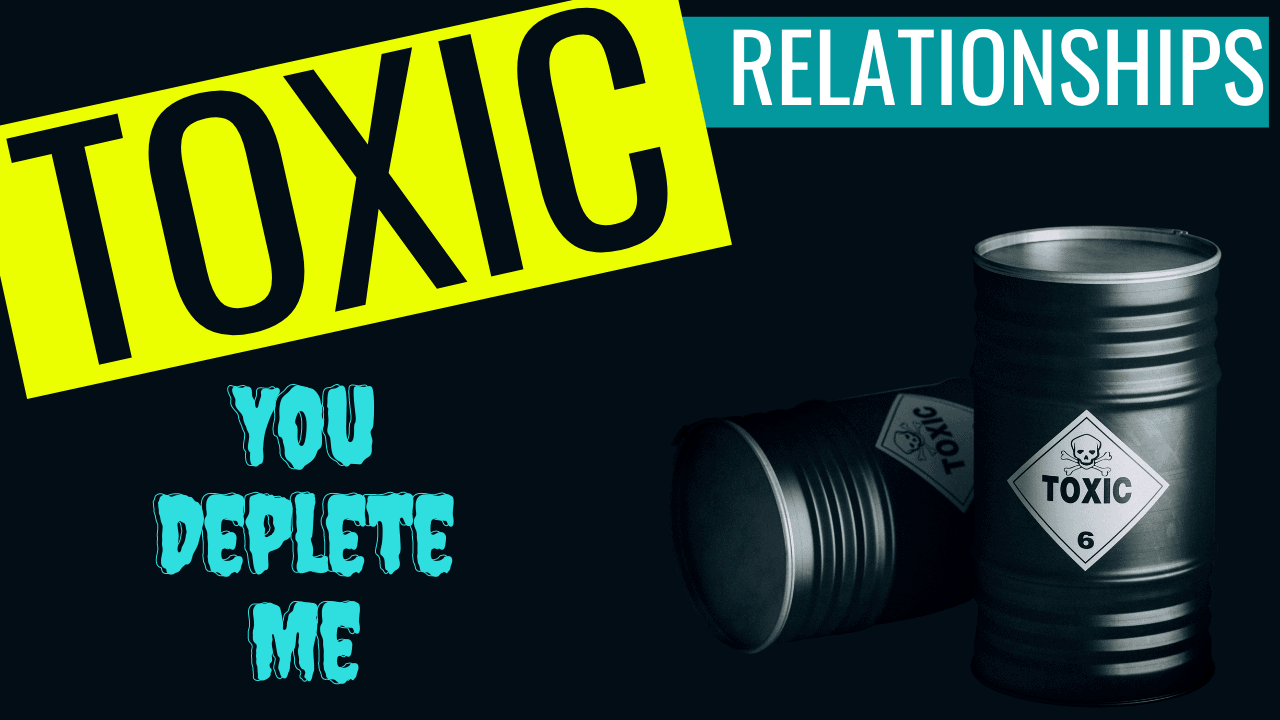If we think about company culture on a continuum, we might label one end “healthy and constructive” and the other “unhealthy and destructive.” On the far side of the unhealthy and destructive end is the toxic zone – a hostile environment where abusive patterns of interaction inflict mental, emotional, and psychological harm.
High-profile companies are under fire for having toxic workplaces as former, and current employees begin to speak out. When it comes to toxic workplaces, there are always apparent signs like outright bullying, sexual aggression, and leaders that can’t hide their gaslighting, but many other warning signs are much more subtle.
In fact, most toxic behaviour is subtle. Subtlety is safer than overt toxicity because it provides deniability. There are plenty of mild ways to bully, harass, discriminate, or publicly shame. Why openly demean or belittle when you can do it privately or softly? It’s typically the brazen acts that get people in trouble. A menu of subtle behaviours might include ignoring a question, neglecting a visible need, failing to provide feedback to maintain ambiguity, withholding time and attention, excluding someone from a meeting or conversation, or simply piling on the work under the guise of mock appreciation.
“Staying silent is like a slow growing cancer to the soul and a trait of a true coward. There is nothing intelligent about not standing up for yourself. You may not win every battle. However, everyone will at least know what you stood for—YOU.”
― Shannon L. Alder
Professional Ghosting and Breadcrumbing
A toxic culture is easy to perpetuate. Yet, to employees, these violations of human decency are painful and debilitating. Subtle acts may not be as visible, but they can marginalise, embarrass, and punish just as effectively as the more aggressive acts. Increasingly, toxic behaviours associated with digital-age dating are spilling over into the workplace.
Ghosting
Ghosting is the act of abruptly – and seemingly without reason – ceasing all communication. No calls, no text messages, no connection made on social media, no responses to any of your messages. For the person who is ghosted, there is no closure and often deep feelings of uncertainty and insecurity. Ghosting hurts; it’s a cruel rejection. It is particularly painful because you are left with no rationale, no guidelines for how to proceed, and often a torrent of emotions to sort through all on your own. If you suffer from any abandonment or self-esteem issues, being ghosted will bring them to the forefront. Professional ghosting is alarming when you’re on the receiving end, and it can be disastrous for your reputation if you’re the one doing the ghosting.
It’s a small world out there in professional circles. Your network is important. There are not “plenty of professional fish in the sea”. At some point in your career the degrees of separation diminish. A mature professional: responds, follows up, and cleanly closes things out. Inexplicably disappearing and refusing to respond to repeated communication attempts is the sign of someone who avoids conflict, lacks integrity, can’t communicate honestly, and doesn’t understand how disrespectful it is. If at any point you decide you are no longer interested, have the courage and honesty to say so. People would rather have you give a firm and polite “No” than to simply vanish. Your professional reputation will only improve when you’re known as someone who communicates honestly.
Breadcrumbing
‘Breadcrumbing’ comes from the fairy tale, Hansel and Gretel. It describes the practice of leaving proverbial breadcrumbs in the form of occasional texts, calls, or social media likes. It’s giving just enough attention to keep a person strung along. Small sporadic reinforcements are handed out, without true commitment. A breadcrumber will play games, only engage in superficial conversation so as to avoid any gestures and words of genuine depth, and never “give you the whole loaf.”
While “breadcrumbing” has been around in the dating world for a while, the idea can apply in professional contexts as well. In August 2019, the BBC reported on how bosses may be guilty of leading employees on, rather than genuinely committing to their development. In today’s job market, this can be the kiss of death for employee engagement and retention. Breadcrumbing occurs when you’re being strung along in a drawn-out interview process, meeting numerous personnel over many months without any end in sight. It also occurs when your manager leads you to believe that you’ll get that raise, promotion, bonus, internal transfer, higher corporate title or switched from the cubicle farm into an office, but there is always a reason why it cannot happen right now.
Breadcrumbing is the common word for the highly manipulative psychological term – intermittent reinforcement. The manager offers just enough breadcrumbs to keep you satiated to stick around. You can see it in action when your boss dangles hints about a sexy new project that you’re on the shortlist for, but these promises mysteriously dissipate into thin air. Breadcrumbing can leave you less satisfied with life in general because you are essentially putting your life on hold for someone who shows just enough interest to fuel your sense of hope, but not enough to provide the connection/development/raise you are looking for.
Instead of picking up the crumbs they scatter, try this strategy:
“Respect yourself enough to walk away from anything that no longer serves you,
grows you, or makes you happy.”
― Robert Tew
Getting the Bread You Deserve
Communicate effectively. When you think someone is breadcrumbing you, pointing out the behaviour can accomplish two goals:
- It shows your awareness of any underhanded attempts to lead you on.
- It gives them the opportunity to share any concerns, like change in business focus, that might be getting in the way of what you are looking for.
First, write down what you have been promised – a promotion, a raise, travel – so you have them on record. If your boss has been teasing you with these for a while, pin them down on it. Organise a meeting when you both have time to talk without interruptions so you can discuss your career progression. Ask your boss why they are not delivering on their promises. Find out if there is something that you are not doing correctly or need some help to improve. You need to know if there are legitimate financial or business reasons as to why the company has not come through with the promises at this time. You could set a timetable for the promises to be met. Keep track of your accomplishments—when and how you’ve exceeded expectations.
If you get the sense that you are being played and there is no real honest intention of promotions or raises, then you need to immediately cut your losses. Don’t let yourself be strung along with breadcrumbs for years. Your career and self-respect are too important to waste on those who are dishonest and don’t care about you. Move onto another company that will actually appreciate you and all the great things you have to offer.
As we continue to navigate the ever-evolving saga of a global pandemic, there is an extraordinary pressure to do more with less. We need to acknowledge that it is taking a toll on mental health across the globe. With everyone on a short fuse, there’s increased risk of minor disagreements tipping into long term conflict. The power dynamics at play can make a bad situation worse and before you can say “hand sanitiser”, toxicity has infected your workplace.
“Some people are in such utter darkness that they will burn you just to see a light.
Try not to take it personally.”
― Kamand Kojouri
6 Warning Signs Your Workplace is Toxic
In February 2021 nearly nine in ten (86%) of employees across a variety of industries surveyed said they had worked in a toxic culture. That is a strikingly higher percentage than many people assume. Sadly, toxic cultures are more than common; they are rampant. Research shows that a toxic workplace can lead to depression, substance abuse, and health issues. If you are starting to feel like workplace problems are affecting you negatively, it might be time to reevaluate.
High Turnover
Pandemic aside, if the company you work for can’t retain employees, there may be a reason. A high turnover rate usually indicates poor leadership, low employee engagement, or unrealistic expectations, at the very least. If you’ve been at your company for a year and notice many co-workers leaving voluntarily, and seeming much happier once they are gone, take note.
Personal Negative Impact
Workplace stress is inevitable. If we’re not being challenged, we’re not growing. However, if you’re lashing out, withdrawing, having health issues, or having trouble sleeping, it could be because you are ruminating on the adverse effects of your workplace culture. This can quickly lead to the desire to reach for substances to cope. This is a big red flag.
Personal Goals Move to the Back Burner
When you work in an environment that consumes all of your time and energy, you may feel that you no longer do activities you used to enjoy. Reading, yoga, taking a walk, or even just relaxing can all feel too hard or a distraction from looming deadlines. Personal accomplishments mean just as much as professional accomplishments. It is equally important to have a balance of both.
No Culture
If your employer places no value on culture, it will be toxic. Focusing solely on improving employees without being constructive will cause employees to always be on edge. A company’s culture is one of its most important assets. When it’s clear that leadership does not value the company culture, it is also apparent that leadership no longer values its employees.
People Don’t Speak Up in Meetings
If meetings or training sessions are full of executives and leaders doing all the talking because employees are afraid to speak up, this is a big red flag. If you’re a leader who is receiving conflicting messages in face-to-face versus the suggestion box, you need to do something about culture. Employees want to be heard, and to see their leaders take action when it makes sense. Most importantly, they want to feel safe voicing reasonable concerns.
Growth is Prevented Instead of Encouraged
Ideally, everyone would have a leader who sees our potential and wants to help us grow. Nevertheless, in many toxic workplaces, managers and supervisors impede growth by blocking opportunities, either by dishing out busy work or even taking credit for their employee’s work. We can know on a deeper level this stems from the leader’s own insecurity, but it doesn’t make it any less toxic for the employee. Poor leaders such as micromanagers, bullies, or even just ones who play favourites can easily contribute to a toxic work environment. So while your company may have an incredible culture, your job may be toxic solely based on your leader.
If you find that you’re experiencing things such as high turnover rates, prevented growth, or even if your gut instinct is to leave, it may be time to update your resume and start looking for another job. If your mental and physical health is suffering, it’s definitely time to consider your next career move. The first step is to give yourself permission to prioritise your own needs. While only you can determine the right move for you, what you bring to the table is worth much more when you’re not suffering. Companies that have this figured out are the ones who are perpetually growing because they’re taking care of their best assets: their employees.
“When I look at narcissism through the vulnerability lens, I see the shame-based fear of being ordinary. I see the fear of never feeling extraordinary enough to be noticed, to be loveable, to belong, or to cultivate a sense of purpose.”
— Brené Brown
Toxic Bosses
We’ve all heard the saying, “People don’t leave companies, they leave managers.” According to a 2017 Global Gallop poll, around 85% of people hate their jobs and especially their bosses! Sometimes, when you’re so used to how things are or when everyone else around you seems to have similar experiences, it can be hard to tell if you’re truly in a bad situation or if this is just the way things are. Essentially, the toxic boss comes in one of two flavours: Negligent or Narcissist.
Narcissist
The Narcissist actively engages in toxic behaviour. After an abusive episode, they are more concerned about their image than the harm they may have caused to their victims. Almost always remorseless, they tend to focus on impression management. Rather than take responsibility for their behaviour, they attempt to influence the perceptions of others and control the flow of information as they interact with those who are not directly under their charge. They focus on the positive presentation of themselves to counteract any negative feedback that may be circulating about them. Narcissist bosses are typically motivated by unbridled ambition and suspended ethical restraints. They selfishly pursue their personal agendas on the backs of those who report to them. And to add another layer of deception, they often publicly acknowledge the value and contribution of their employees.
Negligent
Negligent bosses are passively compliant. They allow abusive episodes and tolerate cycles of mistreatment through the enabling behaviour of being passive, aloof, or absent. In short, they let others engage in toxic behaviours without consequence. Negligent bosses may have a number of motivations for their avoidance. Some believe the fear that others induced through toxic behaviour is productive and provides accountability that they, themselves, are either unable or unwilling to provide. Some are intimidated by the toxic members of their teams and, despite their positional power, yield to the influence of bullies and abusers. Finally, some negligent bosses are preoccupied with other things, and it is that aloofness that makes them dangerous. When a leader is absent, it creates a power vacuum filled by other team members who become the de facto leaders. It’s often neglect and lack of communication that devastate employees the most. Those on the receiving end feel the sting of silence and the void of validation. Most people can live without recognition, but not without basic appreciation.
“Stay away from lazy parasites, who perch on you just to satisfy their needs, they do not come to alleviate your burdens, hence, their mission is to distract, detract and extract, and make you live in abject poverty.”
– Michael Bassey Johnson
The Dangers of the Narcissist Boss
Narcissist bosses will almost never admit to their own behaviour, acknowledge the harm they have caused, nor earnestly strive to change and make things right. Narcissists repeatedly justify their harmful behaviour until they permanently disable the human alarm system we call the conscience or moral fibre. Once they get to that point, any residual compunction is basically a speed bump. While you may not know for sure if someone else meets the criteria for a clinical diagnosis, you are likely to be well aware if they are demonstrating the following characteristics:
- Insistence on being “right” all the time.
- May quickly swing from one extreme of treating you like the best employee on the planet, and the next moment may be threatening to fire you in front of the board of directors, and back again based on their current mood and how they feel about you in the moment.
- Inability to handle any confrontation or assertion that there might be another way to do something, even if they brag about their “open door policy”.
- Lack of object constancy, (for example: when they are angry at you, they may act as if they cannot remember any previous positive feelings towards you or your work).
- In need of constant admiration, combined with punitive behaviour when they do not feel appropriately admired.
- Often compare employees, which may even look like pitting them against one another inadvertently or purposely, often creating divisiveness, resentment, and a lack of cohesion among employees who are often solely focused on saving their own job.
- May be extremely competitive, with the people who work for them, people at their level, or even their own boss.
Narcissist bosses tend to display one or a combination of three common patterns of deflection: denial, blame, and excuse. Toxic bosses in denial refuse to acknowledge their own behaviour. Those exhibiting blame will point to the infractions of others in an attempt to minimise their own failures. Those who demonstrate excuse often acknowledge their behaviour as “strong” or “firm,” but rationalise it as the only way to extract the required performance from others. Or they point to high standards, stress, and a low margin for error as a license for rudeness and disrespect. For this reason, malignant narcissist bosses need to be cut out before they destroy the entire company.
If your manager is impeding your growth, peace of mind or job security, then it’s time to start your job search right away. There are so many other amazing companies, with amazing managers who love mentoring and supporting others. You don’t have to settle for anything less. As a bonus, you may find that as you start your job search, your relationship with your boss will become the least of your worries. Your manager may even start to notice that you’re on the way out and start dropping those breadcrumbs. Don’t be deceived, you’ll never get the whole loaf. The sooner you get serious about your job search, the sooner you can have a better boss who supports you, respects you and challenges you to become the best you can be in your career.
“Being a great place to work is the difference between
being a good company and a great company.”
– Brian Kristofek
Company Cleanse
There is almost never a workaround for a Narcissist boss. In almost every case, they must be removed from their positions because of their unwillingness to acknowledge and take responsibility for their behaviour. Negligent bosses, on the other hand, are frequently coachable if given honest feedback and the opportunity to improve. Teams and organisations don’t outperform their bosses, they reflect them. That’s why sources of toxicity must be identified and either removed or coached. When Susan Fowler, a former engineer at Uber, posted a blog in 2018 detailing her experiences of sexual harassment at the company it lit a firestorm of employee accusations of inappropriate behaviour. This eventually led to an external investigation, which revealed a toxic company culture and resulted in the 2018 departure of Uber Founder and CEO Travis Kalanick.
Sadly, Uber is not an isolated story. Women Who Tech released the State of Women In Tech report in October of 2020, which details findings from a survey of 1,003 employees, founders, and investors in the technology industry. The research found that nearly 50% of women founders and women working in technology have experienced harassment. In terms of the type of harassment, 65% of women founders said they were propositioned for sex and 59% of women experienced unwanted physical contact. Women leave the technology industry because of unsafe workplace practices and toxic cultures created by poor leaders. These workplaces offer almost no opportunities for advancement and create hostile working conditions for the few women who do make it to leadership positions.
Frances Frei (Harvard Business School) was instrumental in leading the cultural change efforts at Uber. There were more than 10,000 people in the organisation and yet the culture was changed within nine months. The vast majority of employees were good people who had fallen into some bad habits due to the examples of ‘success’ that they were being shown. Mostly this was a result of poor leadership practices from a small number of managers. Leaders create culture through the behaviours they choose to ignore, reward, endorse and engage in themselves. There were 3000 managers at Uber and none of them had been trained on how to be a manager. They originally joined as individual contributors and were promoted very quickly.
“Trust is a fragile commodity. Know your code of conduct and the values you stand for. Remember: if you wouldn’t want to explain it on ‘60 Minutes,’ don’t do it.”
― Gary Chapman
Weaponised Cultural Values
What keeps toxic workplace cultures in place is denial. When leaders are not aware of how their behaviour creates negative experiences for employees or worse, they deny these experiences, it often takes whistleblowers like Susan Fowler to call out the bad behaviour. Companies can’t wait for whistleblowers. Leaders need to actively monitor their cultures for signs they might be turning toxic. Particularly in emotionally taxing times, cultures can easily become eroded or worn out. Habitual behaviours eat away at the organisation’s values, and individuals start using the values for personal gain. In this way, cultural values become weaponised. For example, if a value is trust, and you are tired of being questioned, you might lash out, ‘We value trust!’ In healthy organisations, leaders regularly revisit and refine their values to ensure they represent the behaviours employees are expected to engage in.
Most leaders do not wake up each morning intentionally trying to create a toxic work culture. Why is it then that there seems to be a constant flow of breaking news stories of employees sharing claims of workplace toxicity stretching from The Ellen Degeneres Show, to the Washington Metro, to a slew of tech companies like Weta Digital? Unfortunately, toxic work cultures are more common as we’d like to admit. The speed of business, relentless competition, rapid technological innovation, and other complexities strain the capabilities of leaders and teams to adapt and reinvent themselves to stay viable. Many leaders find themselves getting in over their heads and their attitudes and behaviours begin to permeate dysfunction throughout the organisations they lead.
Creating an environment that promotes value-add behaviour has a significant long-term impact on the organisation’s ability to thrive. Leaders exist to align work effort to the mission of the organisation. This cannot be accomplished sustainably if these leaders allow toxicity to permeate their teams and organisation.
“If you want to find the real competition, just look in the mirror.
After awhile you’ll see your rivals scrambling for second place.”
― Criss Jami
Pressure Cooker
As organisations grapple with massive disruptions stemming from the pandemic, one might assume that tensions are high due to losses in revenue and profits, leading to professional and personal uncertainty. It is not surprising that many leaders may be reverting to their most instinctive flight or flight mentalities. We’ve seen similar things happen in years past as organisations met with disruptions that shook them to their core. Leaders in these situations can become overwhelmed to the point where they make knee-jerk decisions in an attempt to navigate the storm.
The norms around what’s expected and possible have been shaken and shattered. This means we are left with an opportunity to progress and take a giant leap forward. The world needs all of us to be fearless in what we do next. We can no longer shy away from difficult decisions and “kick the can down the road.” Fear is a liar. If you find yourself still living with a scarcity mindset, looking for normality and fearing change, you need to address that now and take back control. We need to use this moment to create organisations and societies that are fair, healthy, safe and sustainable. We need to collaborate with new partners, we need to better share our wealth, we need to do everything we can to save our planet, and we need to scale our impact to inconceivable levels. We need to be fearless.
The best way to escape a toxic workplace? Ensure you’re not entering into one to begin with. Do your due diligence to interview the company you’re considering joining, and watch out for any red flags during the interview process. If you’re already in a toxic workplace, there are steps you can make now to take back sovereignty over your life. Begin with establishing healthy boundaries to protect your time, and create the space you need to pursue your own priorities – namely, finding a better place to work.
“When a workplace becomes toxic, its poison spreads beyond its walls and into the lives of its workers and their families.”
― Gary Chapman
70% Off. Use Code: POWERNOW21






